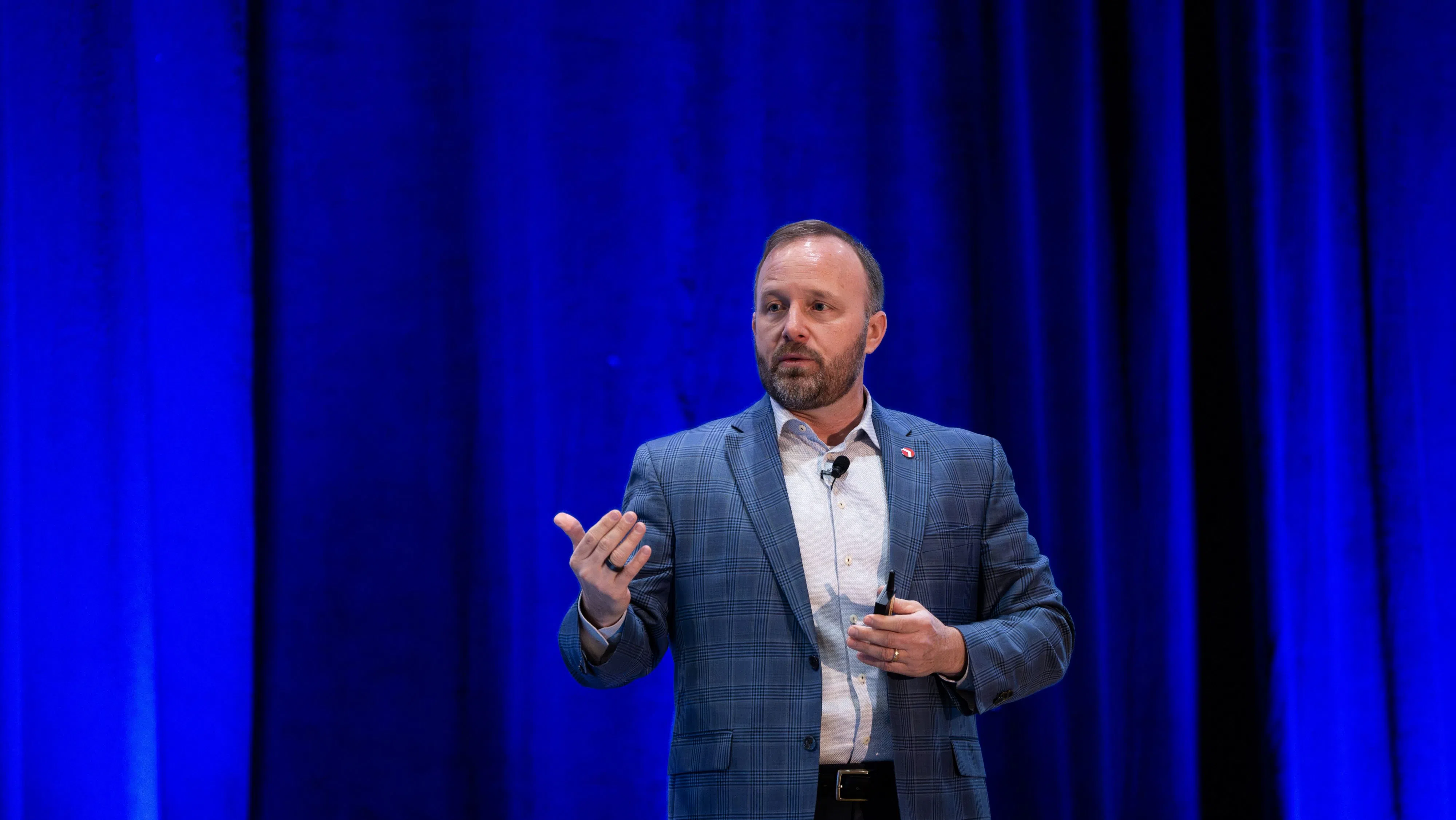GREEN BAY, Wis. — Farmers may not recognize it but what they do daily is vital to the nation’s security.
Scott Caine, president of Aimpoint Research and a former U.S. Army intelligence officer, said making sure Americans have enough food and can get it to those who need it is essential to the nation’s success.
“We have the ability to supply the food, fiber and fuel not only for our country but to export that as well,” he said. “Farmers may not think they are connected to the war in the Ukraine but if the Russians prevent them from sending out their crops, that affects everyone else who eats or produces those crops.”
Headquartered in Ohio, Aimpoint Research is a strategic intelligence firm specializing in agri-food. In 2018, the company released its Farmer of the Future report, which created psychographic segmentations of farmers and future projections, providing a window into farmers’ mindsets. Due to the volatility of the past five years, including the pandemic and increased geopolitical and economic uncertainties, Caine said what was originally predicted to happen by 2040 happened within five years. In response, Aimpoint released Farmer of the Future 2.0.
“What was originally thought to be intangible became tangible,” Caine said. “There was so much change.”
Farmer of the Future 2.0 provides users with a new segmentation of farmers, current state intelligence and future state predictions. Using extensive research, Aimpoint broke farmers into five different categories depending on their collaborative nature and willingness to make changes to their operations: ambitious architects, confident tacticians, connected stalwarts, lone rangers and resolute defenders.
“Most farmers do not fit comfortably in one box but we created this psychographic segmentation so we can help people outside of the industry, including lawmakers, better understand farmers and their decisions,” Caine said.
A detailed look at the different segments helps decision-makers better understand the farmers they are working with, he added.
Here is a closer look at each segment’s descriptions:
- Connected stalwarts (27%): Driven by safety and stability, value partnerships and hesitant towards innovation.
- Confident tacticians (23%): Independent, confident, focused on stability, and looking for partner consultation.
- Ambitious architect (19%): Innovative, growth-orientated, willing to take risks and highly collaborative.
- Resolute defenders (16%): View farming as a lifestyle, prioritize traditional farming practices and resistant to change.
- Lone rangers (15%): Highly individualistic, growth aspirations, adverse to change and not interested in collaboration.
“I am sure we can all think of someone who falls into one of these categories,” Caine said. “Whatever categories farmers fall into, they need to be prepared for potential risks. We need to provide farmers with the right resources and tools at the right time.”
Some future areas of risk include high capital costs, water shortage, digital and cyber security, production risk and compliance costs, he explained. For example, some farmers in central California decided that due to high temperatures and limited water resources, they wanted to move their operations to the Upper Midwest.
“To be successful, farmers must increase their net operating income, diversify income streams and reinvest and innovate,” Caine said.
Farmers need to be aware of the industry drivers of change including data and traceability, precision technology, environmental pressures and biotechnology. Caine said more consumers are becoming interested in a product’s carbon footprint and asking food manufacturers to provide that information, which means food manufacturers and processors will ask farmers for that same data.
“We cannot forget the importance of collaboration and how working together will help farmers meet the challenges that they’re facing, whether it’s due to rising capital costs, climate change or technology,” he said.
This year’s Dairy Strong conference brought more than 400 attendees, representing over 280,000 cows, and industry professionals to the KI Convention Center.






Comments